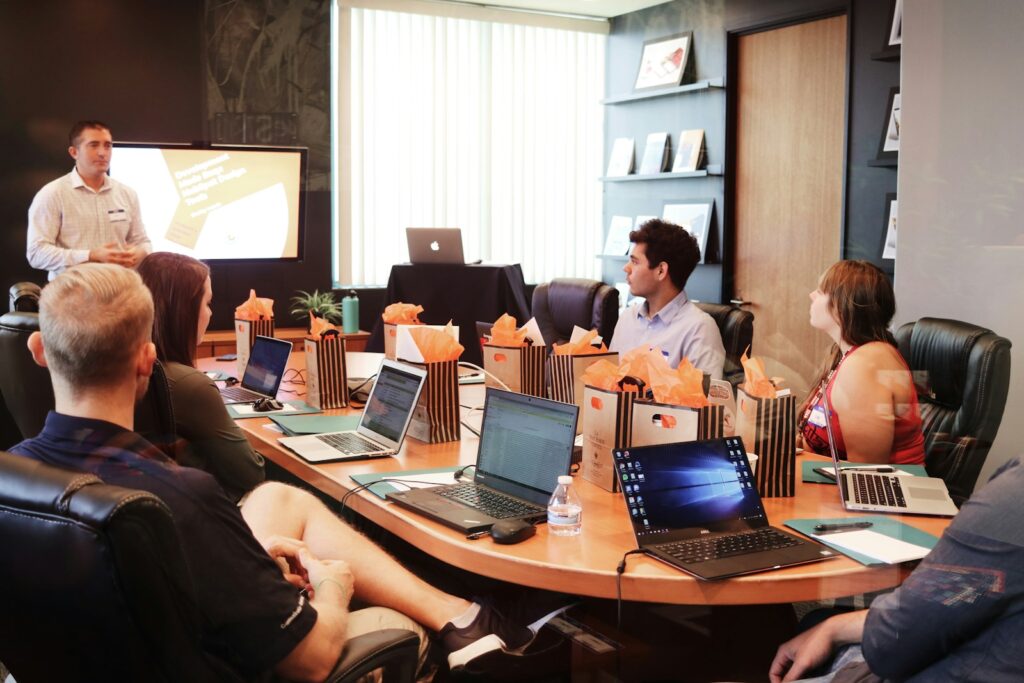
The traditional career narrative often paints a clear picture: climb the corporate ladder, accept every promotion, and rise to the top. The allure of a new title, increased responsibilities, and, crucially, a higher salary is deeply ingrained in our professional psyche, seen as the ultimate reward for dedication and hard work. However, a significant shift is underway in the modern workforce, challenging this linear perception of success and prompting a re-evaluation of what constitutes true career advancement and long-term financial well-being.
Increasingly, professionals are making a strategic, often counter-intuitive, decision: turning down promotions. This isn’t a sign of failure or a lack of ambition, but rather a deliberate choice rooted in a comprehensive assessment of personal and professional priorities. Indeed, a striking 42% of American workers are now declining promotions, indicating a profound reorientation of values driven by a desire for balance, personal well-being, and work that truly aligns with their aspirations.
For many, the perceived benefits of a promotion simply do not outweigh the potential costs, particularly when viewed through a long-term financial lens. From hidden expenses and increased stress to compromised work-life balance and a misalignment with core values, the decision to stay put can often be the most prudent choice for one’s overall financial trajectory and personal fulfillment. Let’s delve into the critical factors driving this trend and explore the multifaceted long-term financial implications of strategically refusing a job promotion.

1. **Understanding the True Scope of the New Role: Beyond the Title’s Allure**When a promotion offer lands, a strategic approach requires looking past superficial appeal. Delve into ‘what the new role entails’: responsibilities, workload changes, team dynamics, and how it aligns with long-term career goals. This reveals whether the promotion truly aligns with your passions or risks diverting you from fulfilling work, potentially impacting future productivity and earning capacity.
The HBR article by Patricia Thompson highlighted a doctor who traded patient care for ‘endless meetings’ in a management role, eventually returning to medicine. This illustrates profound job content misalignment. When a promotion pulls an individual ‘from the hands-on work they love,’ it raises critical questions about engagement and job satisfaction.
Moreover, if the new role demands skills you ‘don’t possess or have little interest in developing,’ it fundamentally questions the fit. Investing time in misaligned areas is a costly diversion, preventing mastery of skills truly serving your desired trajectory. This opportunity cost can lead to dissatisfaction, burnout, or a career pivot, each with significant financial ramifications.

2. **Evaluating Work-Life Balance Against Future Earning Potential: The Cost of Compromise**Work-life balance emerges as a pivotal factor, often outweighing a promotion’s immediate financial uplift. A higher position invariably brings ‘longer hours, increased pressure, and possibly more travel,’ disrupting personal life. Reflecting on how amplified responsibilities encroach upon time for ‘hobbies, family, or personal pursuits’ is critical for preserving human capital, linked to long-term earning potential.
If a promotion threatens this balance, declining it can be self-preservation. While immediate financial gain appeals, increased stress leads to burnout, affecting ‘76% of employees reporting feelings of chronic stress’ (Gallup). Physical effects like ‘fatigue, muscle tension, headaches’ pose ‘a long-term risk to physical wellbeing,’ translating into financial costs.
A compromised work-life balance isn’t just about avoiding burnout; it’s about maintaining mental fortitude and creativity for sustained professional excellence. Forgoing a promotion means investing in your long-term capacity to perform. This foresight acknowledges ‘your well-being and happiness are just as important as your career success,’ optimizing for enduring productivity.

3. **The Ripple Effect on Personal and Professional Relationships and its Career Cost: A Social Capital Investment**
Career decisions cast a wide net over ‘personal and professional relationships,’ often with unseen long-term financial costs. A promotion into management can ‘alter dynamics and lead to tension’ with former peers. This shift erodes trust and undermines ‘stellar teamwork,’ impacting productivity, morale, and access to networks, all vital for career stability.
The professional landscape thrives on strong relationships and a supportive network. When a promotion disrupts these, the cost can be substantial, hindering success and affecting performance reviews. This impacts long-term earning potential, as reputation and professional goodwill are invaluable currencies.
On a personal level, ‘additional stress and time commitment’ might ‘negatively impact your relationships with friends and family.’ This erosion of support systems leads to isolation and reduced emotional well-being. Neglecting family commitments creates unsustainable pressures. The long-term financial strain far outweighs an immediate salary bump, making declining a promotion a strategic investment in holistic well-being and sustained career viability.

4. **Beyond the Headline Pay Raise: Unpacking Hidden Financial Implications**While a promotion’s most immediate feature is ‘a pay raise,’ a thorough financial assessment reveals the headline figure rarely tells the full story. It is ‘important to consider all the financial implications,’ extending beyond the new salary. Sometimes, compensation ‘does not compensate for the additional hours, stress, and responsibilities,’ potentially leading to a lower effective hourly rate.
Promotions can come with ‘hidden costs’ that directly eat into any salary increase. These include ‘a wardrobe upgrade,’ ‘increased travel expenses,’ or ‘relocation.’ Such expenses diminish net financial gain, leading to unexpected financial strain. Strategic professionals evaluate these comprehensively, ‘ensuring that the financial benefits outweigh the costs and align with your financial goals.’
A deeper financial analysis also encompasses the long-term impact on personal financial planning. If increased responsibilities mean less time for managing investments or pursuing financially beneficial personal goals, the promotion could subtly undermine long-term wealth accumulation. Refusing a promotion can sometimes be a proactive step in safeguarding one’s overall financial health and ensuring alignment with a sustainable financial strategy.

5. **Alignment with Long-Term Career Goals and Personal Values: The Non-Monetary Return**A promotion ideally propels an individual ‘closer to your long-term career goals.’ However, critical assessment is needed to discern if the new role genuinely aligns or represents a diversion. If it ‘diverts you from your intended career path or requires you to work in an area you’re not passionate about,’ accepting it might hinder true progression, leading to decreased job satisfaction, disengagement, and long-term financial consequences.
Beyond career path, intrinsic alignment with ‘values or ethics’ is equally critical. If the ‘company’s direction or the methods you’re expected to employ in the new role conflict with your values,’ then ‘turning down the promotion could be the best course of action.’ Operating in a role that compromises values leads to moral distress, reduced performance, and eventual departure, incurring search costs and income gaps.
Commitment to authenticity ensures each step taken is ‘a true reflection of who you are and what you stand for.’ This deep alignment fosters sustained motivation, high-quality work, and greater resilience. While a misaligned promotion might offer immediate financial gain, the long-term cost of professional dissatisfaction and ethical compromises often outweighs these. A strategic refusal is an investment in long-term career fulfillment.

6. **The Strategic Merit of Staying Put: Maximizing Current Role Value for Long-Term Gain**In a culture equating success solely with upward mobility, the ‘merit of staying in your current role’ is often overlooked. Yet, choosing to ‘stay where you are’ can be strategic, particularly ‘if you’re still learning, growing, and enjoying your current role.’ This prioritizes depth over rapid ascent, recognizing that accumulating valuable skills, experience, and networking yields greater long-term professional and financial dividends. Growth isn’t always linear.
If a current position offers avenues for continuous skill development, deeper industry expertise, and expanded professional networks, leveraging these can be ‘more beneficial in the long run.’ Mastering one’s craft commands premium compensation and opens doors to highly desirable roles. This contrasts with a premature move into management that might ‘force managers out of their most meaningful work,’ diluting expertise and depressing long-term earning power.
Moreover, if the current role ‘offers a better balance between your professional and personal life,’ this equilibrium is a valuable asset. Protecting work-life balance mitigates burnout and safeguards well-being, critical for sustained productivity and long-term career viability. This satisfaction indirectly contributes to financial health by reducing stress-related costs and enabling consistent performance, demonstrating ‘success not just by upward mobility but by the depth of one’s engagement and satisfaction with their work.’

7. **The Burnout Epidemic and its Economic Toll: A Silent Threat to Financial Future**The workplace grapples with ‘the burnout epidemic.’ ‘76% of employees reporting feelings of chronic stress’ (Gallup) highlight critical burnout levels, reshaping views on career advancement. The ‘relentless ‘grind culture’’ has lost its luster for many prioritizing ‘mental health over job titles,’ recognizing ‘taking on more responsibility could worsen their burnout’ and impact long-term financial stability.
The economic consequences of burnout are profound. Chronic stress means increased healthcare expenditures for physical ailments. Unchecked mental health issues lead to reduced productivity, impaired decision-making, and prolonged ‘sickness absence,’ directly impacting income. Poor mental health costs UK businesses ‘£2.4 billion and 70 million working days a year,’ illustrating a significant financial drain.
Accepting a promotion exacerbating burnout is a risky gamble. It can lead to premature exits, career sabbaticals, or sustained underperformance, all with significant financial penalties. The long-term financial security a promotion promises can be negated if the role pushes an individual to exhaustion. Declining a promotion to safeguard health is thus a crucial financial strategy, recognizing sustained well-being as the bedrock of consistent earning power.
Navigating the modern professional landscape requires a nuanced understanding of career progression, one that extends far beyond the traditional linear ascent. As we continue our exploration of why individuals are increasingly choosing to decline promotions, it becomes evident that a confluence of evolving workplace dynamics, personal values, and strategic foresight is at play. This next series of insights delves into the broader trends driving these decisions and the essential shifts leaders must embrace to retain and empower top talent.

8. **The Empty Promotion Trap: When Title Doesn’t Translate to Value**In an era where professional advancement is often synonymous with a new title, a startling reality has emerged: the ’empty promotion’ trap. This phenomenon refers to promotions that come with increased responsibilities and expectations but crucially, without a commensurate increase in financial compensation. The allure of a shiny new title, while impressive on a résumé, doesn’t address the fundamental economic needs or adequately reward the heightened demands of a more senior position.
Indeed, a significant 39% of promotions now offer no pay increase, a statistic that underscores a growing disconnect between organizational recognition and tangible reward. For many professionals, the calculation is straightforward: if the additional hours, heightened stress, and expanded responsibilities are not met with a meaningful financial uplift, the trade-off simply isn’t worth it. This can lead to a lower effective hourly rate and a profound sense of undervaluation, subtly undermining long-term financial well-being despite outward appearances of career progression.
Strategic professionals are acutely aware that a promotion’s true value extends beyond its nominal title. They meticulously evaluate whether the financial benefits genuinely outweigh the hidden costs and the often-unseen strain that comes with higher positions. Declining an empty promotion, therefore, is not a lack of ambition but a financially prudent decision, ensuring that career moves genuinely align with personal financial goals and prevent an erosion of one’s earning potential and overall job satisfaction.

9. **The Post-Pandemic Awakening: Prioritizing Flexibility and Well-being**The global COVID-19 pandemic acted as a profound catalyst, reshaping collective perceptions of work and irrevocably altering what employees prioritize. The forced shift to remote and hybrid work models proved, beyond doubt, that a healthy work-life balance is not only achievable but highly desirable. This ‘post-pandemic awakening’ fundamentally re-evaluated the traditional workplace contract, moving away from a rigid, office-centric model towards one that values adaptability and personal time.
As a direct consequence, the traditional appeal of the “corner office” has significantly diminished. Employees now place a premium on flexibility, autonomy, and the invaluable time spent with loved ones. This newfound appreciation for personal well-being means that job offers, particularly promotions that might threaten this equilibrium, are scrutinized through a different lens. The prospect of longer hours or increased travel, once accepted as part of career advancement, is now a major deterrent if it encroaches upon this cherished balance.
For leaders, this shift necessitates a fundamental rethinking of promotion structures. Organizations that fail to adapt by embedding remote and hybrid work options as standard, rather than mere perks, risk losing valuable talent. Embracing this awakening means recognizing that career success is no longer solely defined by title or office presence but by the ability to integrate professional growth with a fulfilling personal life, ultimately impacting retention and employee engagement.

10. **The Value of Specialization: When Meaningful Work Outweighs Management**Many employees are deeply invested in specific roles, finding profound satisfaction and expertise in hands-on work. For these specialists, a promotion that transitions them into a management position can represent a significant, and often unwelcome, shift. While intended as an advancement, such a move can paradoxically pull individuals away from the core tasks they love, leading to a dilution of their expertise and a decline in job satisfaction.
Patricia Thompson’s HBR article vividly illustrates this dilemma with the example of a doctor who traded direct patient care for a management role filled with “endless meetings,” eventually returning to medicine. This case highlights how promotions, particularly those involving a broadening of responsibilities into management, can force individuals out of their most meaningful work. The profound impact on engagement and long-term career fulfillment becomes a critical consideration for those weighing such offers.
Choosing to remain in a specialized role, therefore, is often a strategic decision to master one’s craft and continue accumulating valuable, in-demand expertise. While rapid upward mobility might be tempting, preserving one’s connection to meaningful work can lead to greater long-term professional and financial dividends. It allows individuals to command premium compensation for their deep skills, rather than accepting a managerial role that might diminish their specialized value and potentially lead to burnout or a career pivot.

11. **Personal Goals and Out-of-Work Commitments: A Holistic Career View**Career decisions are rarely made in a vacuum; they are intrinsically linked to an individual’s broader life circumstances and aspirations. Sometimes, an employee’s out-of-work obligations and personal goals simply make it unfeasible to accept the increased demands of a promotion. These commitments can range from significant family responsibilities, such as caring for children or vulnerable relatives, to pursuing deeply held personal ambitions.
For instance, the context highlights that employees may have personal goals entirely unrelated to their day job. A striking 64% of UK workers, including 83% of 18-25 year-olds, aspire to start their own businesses. For such individuals, taking on a more significant corporate role, with its inherent time and stress commitments, could directly compromise their ability to achieve these entrepreneurial or personal career goals. They strategically refuse promotions to protect the time, energy, and resources needed for these ventures.
Declining a promotion in these scenarios is not a lack of commitment to the company but a strategic investment in a holistic life plan. It reflects a nuanced understanding that true career fulfillment often involves balancing professional growth with deeply personal objectives. For leaders, acknowledging and accommodating these external commitments, perhaps through flexible work options, becomes crucial for making career paths genuinely accessible and retaining valuable talent who might otherwise feel compelled to look elsewhere.

12. **Leaders Must Offer Flexibility and Mental Health Resources: Adapting to New Priorities**The shift in employee priorities demands a proactive and empathetic response from leadership. When promotions are consistently declined, it serves as a critical signal of deeper organizational issues, including employee dissatisfaction and a misalignment between corporate objectives and individual well-being. To address this, organizations must fundamentally rethink their approach to workplace culture and employee support.
A cornerstone of this adaptation is the institutionalization of remote and hybrid work options, moving them from optional perks to standard practice. Beyond flexibility, a robust investment in mental health programs is paramount. Providing accessible counseling services, wellness applications, and dedicated mental health days demonstrates a genuine commitment to employee well-being, directly countering the pervasive burnout epidemic and fostering an environment of trust.
These strategic investments are not merely humanitarian gestures; they are vital for business continuity and talent retention. By offering comprehensive flexibility and prioritizing mental health, leaders can significantly reduce the incidence of burnout, enhance overall productivity, and cultivate a loyal and motivated workforce. This adaptive leadership ensures that the organization remains attractive to top talent who increasingly value well-being as much as, if not more than, traditional career advancement.

13. **Making Promotions Truly Meaningful: Beyond the Title Alone**In an evolving workforce where employees are more discerning about career advancement, leaders must recognize that a new title alone no longer suffices as an incentive for promotion. The ’empty promotion’ phenomenon has taught employees to look beyond superficial prestige to assess the tangible value offered. For promotions to be truly effective in retaining and empowering talent, they must come with substantive rewards and genuine opportunities.
This means ensuring that promotions are accompanied by competitive pay raises that adequately compensate for increased workload, stress, and responsibilities. Furthermore, comprehensive benefits packages and clear pathways for continued growth and development are essential. Employees need to perceive a clear, tangible value in advancing their careers within an organization, where the investment of their time and effort translates into a clear, positive financial and professional return.
When promotions are meaningfully structured, they align with employees’ expectations for fair compensation and professional development. This approach not only makes promotion offers more attractive but also reinforces a culture where hard work is genuinely rewarded. By making promotions meaningful, leaders can counteract the trend of declines, ensuring that upward mobility remains a desirable and financially viable path within their organizations, ultimately fostering greater commitment and loyalty.

14. **Prioritizing Skill Development and Autonomy: Empowering a Future-Ready Workforce**In addition to financial incentives and flexibility, a forward-thinking leadership strategy must prioritize continuous skill development and employee autonomy. Investing in comprehensive training programs empowers employees to deepen their expertise, acquire new competencies, and grow authentically in their roles, fostering a sense of purpose and long-term engagement. This focus on internal growth is a powerful retention tool, as companies prioritizing professional development experience a remarkable 50% lower turnover rate.
Equally crucial is the granting of autonomy, enabling employees to make decisions, lead initiatives, and take ownership of their work. This not only cultivates a sense of trust and empowerment but also encourages innovation and problem-solving, which are invaluable assets in a dynamic market. When individuals feel they have agency over their contributions and direction, they are more likely to be motivated, perform at higher levels, and remain committed to the organization.
This strategic emphasis on skill development and autonomy aligns with the evolving definition of career success, moving beyond mere hierarchical ascent to embrace specialized growth and personal fulfillment. By investing in their employees’ capabilities and trusting them to drive results, leaders can build a resilient, adaptable, and highly engaged workforce. This approach ensures that employees see clear avenues for meaningful progression, not just through promotions, but through continuous learning and impactful contributions, ultimately securing the organization’s long-term success.
The evolving landscape of career advancement underscores a profound shift in employee priorities, where well-being, genuine fulfillment, and a clear alignment with personal values often take precedence over traditional notions of upward mobility. The decision to decline a promotion, once viewed as an anomaly, is now recognized as a strategic choice—a thoughtful recalibration of professional trajectory for long-term happiness and sustainable success. For leaders, this presents an imperative to adapt, to foster workplace cultures that champion flexibility, meaningful rewards, continuous growth, and empowered autonomy. By doing so, organizations can not only stem the tide of promotion rejections but also cultivate a thriving, loyal, and motivated workforce ready to define success on its own terms.




